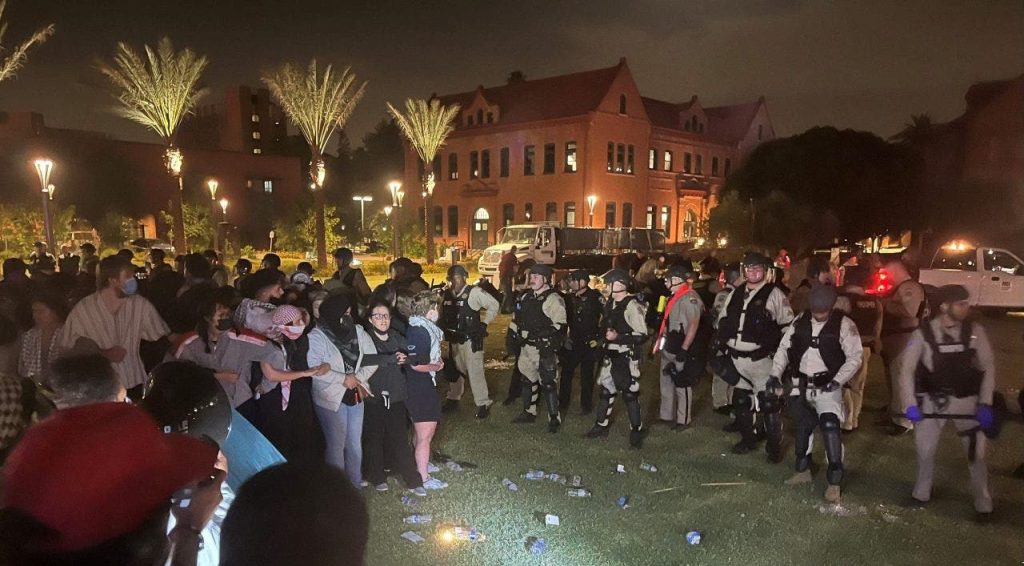In Arizona, a judge denied a motion to lift the suspension of twenty students arrested during anti-Israel protests at Arizona State University. The students had filed a lawsuit against the Arizona Board of Regents, claiming that their suspensions were causing irreparable harm and violating their First Amendment rights. The judge ruled that there was not enough evidence to show that the students’ rights had been violated or that the suspensions were causing irreparable harm. The students, who were charged with trespassing, have yet to have their cases brought to court.
Approximately 72 individuals were arrested during the protests at Arizona State University, including both students and faculty. The protests led to police officers clearing the Old Main lawn area overnight. Students and faculty have been demanding that the university drop any charges against the protesters with ongoing demonstrations since the arrests. Meanwhile, the University of Arizona is also facing issues with protesters occupying areas of the campus. University President Robert C. Robbins directed officials to enforce campus use policies and laws without further warning, resulting in state troopers being on campus with pepper ball guns and gas masks.
The judge’s ruling in Arizona highlights the ongoing struggles universities are facing in regards to anti-Israel protests on campuses. With students and faculty demanding that charges be dropped against protesters, tensions are high on these campuses. The University of Arizona’s efforts to suppress protesters resulted in a heightened police presence and eventual arrests of demonstrators. The situation at both Arizona State University and the University of Arizona underscores the challenges of balancing free speech rights with maintaining order and safety on campus.
The decision by the judge not to lift the suspensions of students at Arizona State University sheds light on the legal considerations that universities must address when dealing with protesters. The students’ claims of irreparable harm and First Amendment violations were not supported with sufficient evidence in the court’s ruling. This ruling indicates that universities have a responsibility to ensure that protests and demonstrations are carried out in a manner that complies with campus policies and laws.
The protests at Arizona State University and the University of Arizona reflect a larger trend of increased activism and demonstrations on college campuses. With tensions surrounding the Israeli-Palestinian conflict running high, universities must navigate the delicate balance between protecting free speech rights and maintaining order on campus. The actions taken by university officials and law enforcement to address these protests have drawn attention to the challenges of managing dissent and upholding safety and security within academic institutions.
Overall, the situation in Arizona underscores the complexities universities face in addressing anti-Israel protests and demonstrations on campus. As students and faculty continue to push for charges to be dropped against protesters, universities must carefully consider the legal and safety implications of their actions. The ongoing tensions and confrontations on campuses serve as a reminder of the importance of balancing free speech rights with ensuring a safe and conducive learning environment for all members of the university community.


